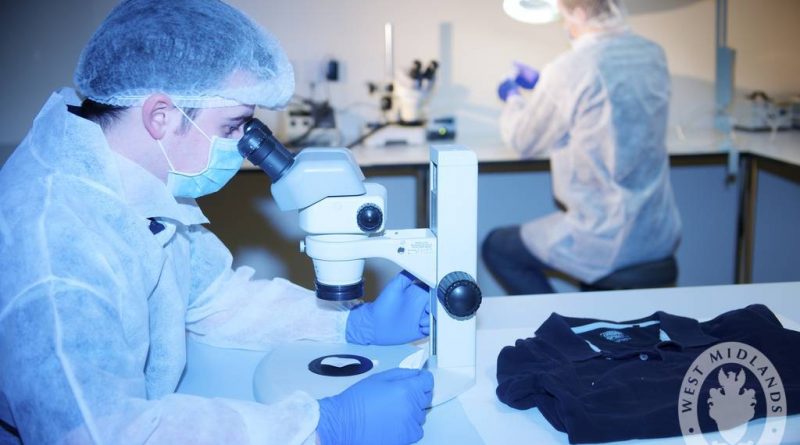Maintaining Air Quality in a Forensic Laboratory
Maintaining air quality in a laboratory is paramount to the health and safety of everyone on site. The Occupational Safety and Health Administration (OSHA) requires that employers protect workers from exposure to harmful substances by controlling their exposures through engineering, work practice, or administrative controls.
Maintaining an optimal level of cleanliness will also help prevent employees from getting sick because of contaminants in the air that can cause respiratory infections or other illnesses. In order to maintain a healthy environment for your forensic lab employees, there are some ways you can do so.
How to Maintain Air Quality in a Forensic Lab
Regularly change filters in HVAC systems:
Changing filters on HVAC systems regularly ensures that the air supply is clean and prevents the buildup of dust and other contaminants. It also helps you save money by reducing the need for air conditioning and heating.
Keep surfaces clean:
Keeping your lab’s surfaces clean can dramatically reduce the presence of contaminants in the air, as well as make it easier to disinfect any spills that happen on site. Additionally, it may be wise to disinfect surfaces with a stronger solution of your regular cleaning agent periodically.
Maintain good ventilation:
Ensure that you’re following appropriate guidelines on how much fresh air should enter through an open window or door at a time, as well as ways to improve natural airflow throughout the building by opening doors inside rooms next to each other. This also reduces CO levels from being too high indoors because exhaust fans can’t remove them when they are outside where there’s more oxygen available.
Keep windows clean and free of mold:
Keeping external windows clean improves air quality by reducing the amount of dirt and dust particles in the air and helps reduce water usage because you won’t have to clean them as often. You’ll want to ensure that windows are free from mold or other signs of heavy moisture so they don’t create a humid indoor environment where fungi can grow and release spores into the air.
Cleaning ducts:
Cleaning vents from time to time will help keep them clear of dirt or debris and prevent the accumulation of mold in these areas. If there’s no space for duct installation, you can invest in a ductless fume hood, which will help maintain air quality by reducing the number of contaminants that are released to the lab.
Keep surfaces free from clutter:
Clutter around desks can be a breeding ground for bacteria and viruses, so try not to have papers piled up everywhere. Any exposed food should also be covered with lids while sitting out at workstations. It also helps to schedule cleaning for offices and labs so that the spaces are regularly cleaned.
Remove furniture from the lab:
If you have old or damaged equipment, it’s advisable not to store them in a laboratory as these items can emit chemicals that can cause respiratory symptoms such as coughing or wheezing. These things should be removed immediately if possible but at least covered with plastic sheets before being moved out of the lab area.
Do periodic air quality testing:
It is important to do air quality tests on an annual basis because this ensures that levels of contaminants are within acceptable limits and there are no issues with ventilation systems. Plus, you can install a ventilation system to control airflow if you notice that the lab is getting too stuffy.
Remove all liquids from the workplace:
To prevent spills and contamination, it’s important not to store any liquids in a laboratory as these can create hazardous zones for employees who work with chemicals or biological contaminants. If there are liquids on-site, they should be stored away from other materials in specially designed cabinets where fumes cannot reach them, which could cause an explosion.
Keep air filters clean:
It is also necessary to ensure that your air filter equipment stays well maintained because this will ensure fresh and healthy air quality for everyone working in the forensic lab environment. Dirty filters may need replacing every three months, depending on how often they’re used. To keep up with this to keep the air quality at its best.
Treat water damage quickly:
Water spills will lead to mold growth which could release toxic substances into your workspace environment, so make sure you get the water cleaned up as soon as possible. Moreover, if you see any dampness in your lab environment, make sure you get an expert to take a look at it.
Invest in safety equipment:
OSHA also recommends investing in personal protective equipment such as appropriate gloves, masks, respirators, foot protection, etc., which will help protect employees from exposure to potential hazards while performing their duties. These items should only be used when necessary and not just left hanging around because of how expensive they can be! Protecting people’s health requires proper use of PPEs and careful storage of them, so they don’t become a safety hazard!
Install an ultraviolet light to kill airborne bacteria and viruses:
Ultraviolet lights are a handy option for disinfecting surfaces in the laboratory. You can place them at the entryways to help prevent virus particles from coming into contact with surfaces. Besides, ultraviolet lights and filters can help kill airborne bacteria to reduce the risk of infections.
Maintain a clean environment:
This is one of the ways that you maintain the air quality in forensic labs by reducing exposure to potential hazards such as microbial contamination, chemical contaminants, vapors, or dust. A clean laboratory will also prevent employees from getting sick because of these types of things! It’s much easier than spending time trying to get rid of contaminants on surfaces when they are left up for prolonged periods which allows them to continue reacting with other chemicals.
Maintain a clean workstation:
A forensic laboratory should be cleaned at least once every day. Cleaning your desk or other work areas will help decrease the number of germs that can get on surfaces and contaminate equipment, documents, etc. Disinfectant wipes are inexpensive ways to remove germs from desks without needing to use harsh chemicals like bleach which could cause an allergic reaction for some people. Vacuuming is also important because if you have pets in the lab, then pet hair will accumulate over time, leading to bigger problems with air quality maintenance as well!
Conclusion:
Maintaining air quality in forensic labs is a crucial part of the safety and well-being of employees in these settings. So, ensure you’re purchasing the best air quality maintenance products and using them in ways that will protect your employees.




